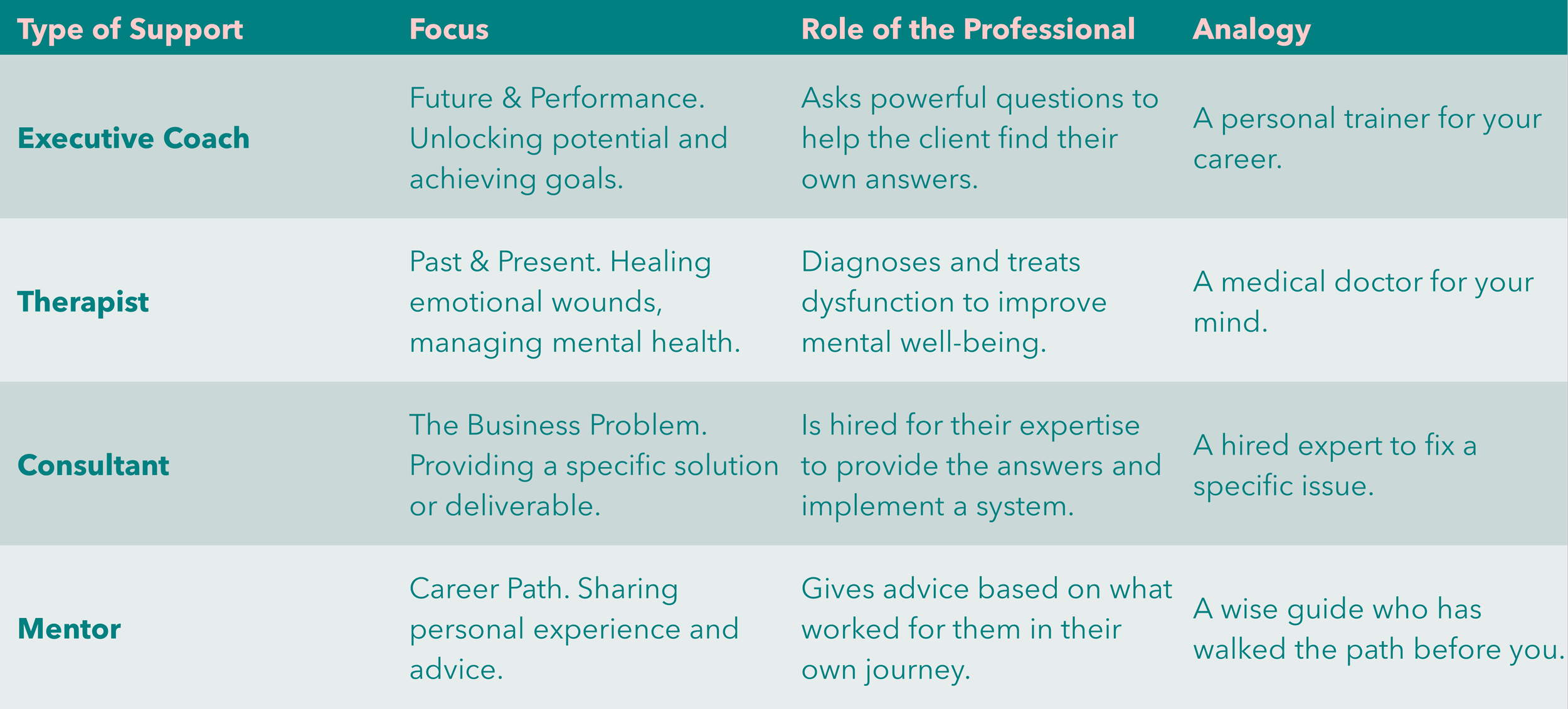
Executive Coaching for Exceptional Performance
Executive coaching is a professional development partnership designed to help leaders improve their performance and unlock their full potential. It's a confidential, one-on-one relationship between a leader (the coachee) and a trained professional (the coach).
Think of it this way: even the world's renowned CEOs, like Steve Jobs or Mark Zuckerberg, had coaches. It's not because they don't know how to do their jobs; it's because a coach provides an outside perspective, pushes them to be better, helps them see their blind spots, and holds them accountable to their highest goals.
An executive coach does the same for a leader in the business world.
The Primary Goal: From Good to Exceptional
The fundamental goal of executive coaching is not to "fix" a broken leader, but to help already high-performing individuals become more effective, strategic, and fulfilled. It’s about closing the gap between where a leader is and where they—and the organization—want them to be.

Who is Executive Coaching For?
While the term includes "executive," the practice is for a broad range of leaders:
C-Suite Executives (CEO, COO, CFO, etc.): To act as a strategic sounding board, manage the pressures of the role, and align the senior leadership team.
Vice Presidents & Directors: To develop strategic thinking, improve influence across the organization, and manage larger, more complex teams.
High-Potential Individuals: To prepare them for future leadership roles, accelerating their development and readiness.
Founders & Entrepreneurs: To help them transition from "doing everything" to leading a company, managing scale, and dealing with investor pressure.
Leaders in Transition: Individuals who have been newly promoted, have taken on a significant new project, or are navigating a merger or acquisition.
What Do You Actually Work on in Executive Coaching?
The content of coaching is tailored to the individual, but sessions often revolve around these key areas:
1. Leadership & Management:
Improving Communication: Learning to inspire teams, deliver difficult feedback, and communicate a clear vision.
Delegation & Empowerment: Shifting from doing the work to leading the people who do the work.
Team Building & Motivation: Creating a high-performing culture and increasing employee engagement.
Conflict Resolution: Navigating difficult conversations with peers, direct reports, or stakeholders.
2. Strategic Thinking & Vision:
Decision-Making: Developing frameworks for making better, faster decisions under pressure.
Strategic Planning: Moving from day-to-day firefighting to long-term, visionary thinking.
Change Management: Leading teams effectively through organizational change and uncertainty.
3. Personal Effectiveness & Presence:
Executive Presence: Enhancing confidence, gravitas, and the ability to command a room.
Time Management & Productivity: Focusing on high-impact activities and managing energy, not just time.
Stress Management & Resilience: Building strategies to avoid burnout and maintain performance under pressure.
Self-Awareness: Identifying blind spots, understanding personal triggers, and leveraging strengths.
How is Executive Coaching Different from...
This is a crucial point of confusion for many.
The Benefits of Executive Coaching
Increased Self-Awareness: A clear understanding of strengths, weaknesses, and blind spots.
Improved Decision-Making: More confidence and clarity in strategic choices.
Enhanced Leadership Skills: Better communication, influence, and team management.
Higher Confidence & Resilience: Greater ability to handle pressure and setbacks.
Career Advancement: Better positioning for promotions and greater responsibilities.
If you're ready to start this journey of discovery and unlock your full potential, let's have a chat. Book a complimentary discovery call with me today to see how coaching can accelerate your growth.



